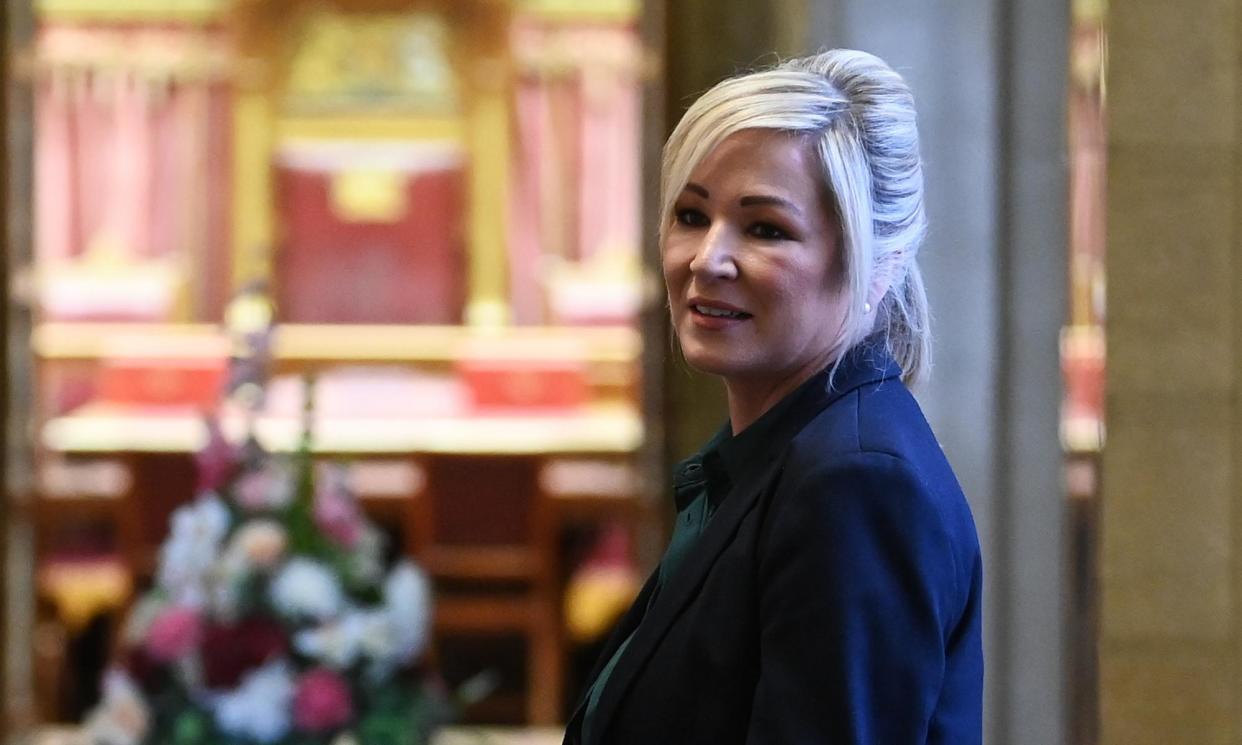The Guardian view on Northern Ireland: a historic deal that allows government to function

Before the elections to Northern Ireland’s assembly in 2022, Sir Jeffrey Donaldson repeatedly refused to say that he would accept a Sinn Féin first minister. What a difference a deal makes. Although Sir Jeffrey says that he didn’t get all he wanted from the British government over changes to post-Brexit trade arrangements, it was enough to satisfy him. In return, he won’t stand in the way of Stormont getting its first Irish republican leader, Michelle O’Neill. Sinn Féin is opposed to Northern Ireland’s existence. By this weekend, Ms O’Neill could be in charge of it.
This would be a seismic event in Northern Ireland. Two years ago, Sinn Féin became the first nationalist party to win a Northern Ireland assembly election. There are urgent reasons for Stormont to sit again, not least to spend the £3bn financial package on tackling hospital waiting lists and settling public sector pay claims. More’s the pity that Stormont’s power-sharing executive will not be revived in time to prevent Northern Ireland’s transport workers going out on strike this Thursday.
While the assembly was suspended, infighting within unionism has taken off. Many of the movement’s leading lights look adrift from broader concerns. The death of Queen Elizabeth and the 2022 census result, showing more Catholics than Protestants in the north, are signs that the movement risks being left behind. As recently as 2017, unionists held a majority in the assembly, as they had done in every parliament or assembly since Northern Ireland was first established in 1920. Yet the last elections suggested an inbuilt unionist majority had gone.
While Sinn Féin’s success in the last assembly election was a dramatic result, the most substantive shift was the surge in support for the centrist, border-neutral Alliance party. With its roots – and increasingly its support – in moderate unionism, the party could be seen as a rebirth of Protestant liberalism. Alliance politicians have worked with Sinn Féin to oppose Brexit. Both parties accepted the Northern Ireland protocol, which keeps the region aligned with EU rules to avoid the border infrastructure that had proved divisive before the 1998 Good Friday agreement. The parties have also worked together on controversial issues such as abortion rights and equal marriage.
This augurs well for the new assembly, which must vote by December to keep the protocol, rebranded by Rishi Sunak as the Windsor framework. Without details of the DUP’s deal with the British government being released, there seem to be little but cosmetic changes made to the framework. The deal’s timing is relevant as mainland checks on imports from the continent begin this week. The more the UK diverges from EU standards, the greater the potential cost of bureaucracy involved in exporting to and importing from Europe.
Northern Ireland must be able to move on from the smoke and mirrors of Brexit, which has often been used to encourage the traditional insecurities of unionists. The devolved government in Belfast is in charge of most public services, including schools, hospitals, roads and the justice system. For it to function effectively requires the region’s politicians to work together and not fuel new divisions. Closer ties with the EU would help by smoothing trade across the Irish Sea. Sir Keir Starmer, who is likely to be in power within a year and favours a better relationship with Brussels, could very well be the right man at the right time.

 Yahoo News
Yahoo News 
